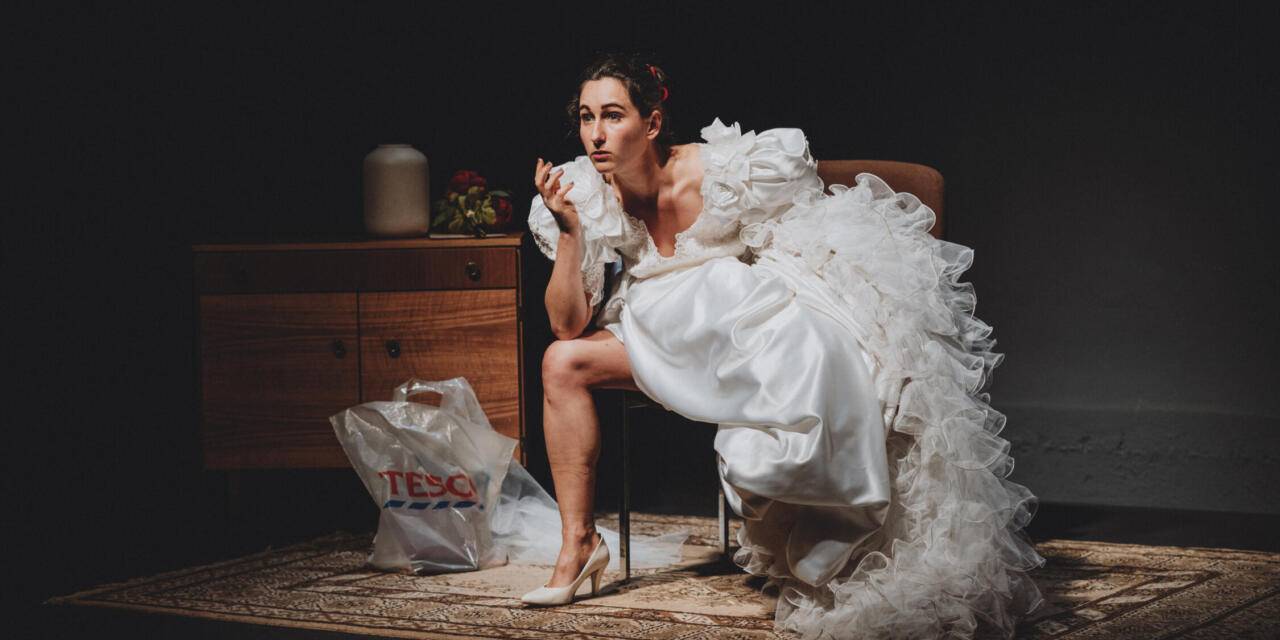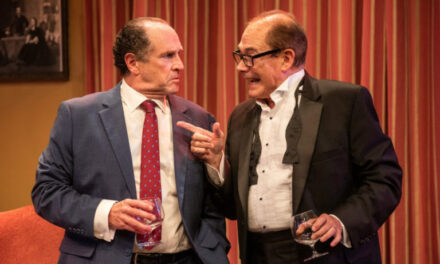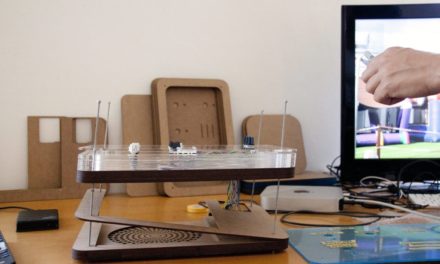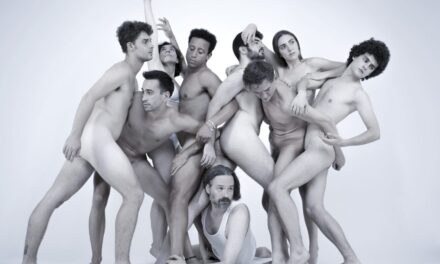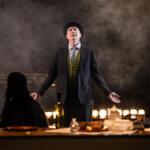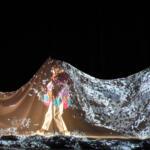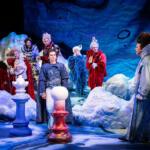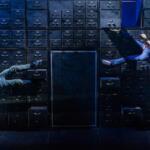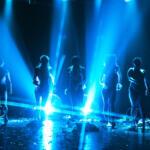There is a show at this year’s Fringe called Distant Memories of the Near Future written and performed by copywriter and storyteller David Head. It is billed as a piece which imagines an AI future where romance is run by algorithms and the primary relationships on the agenda are those we have with technology, creativity and ourselves. In its structure this is a story that consists of five disparate narratives with protagonists that apparently have nothing much in common, yet there are incidental ways in which their lives graze against each other and are held together by pithy soundbites resonating across this non-linear master-structure. Evocative of the proverbial butterfly whose flutter of wings in one part of the world can cause a tsunami in another, this sort of network-based, randomised, rhyzomatic arrangement is also the only way in which I can begin to summarize my unwieldy week at the Edinburgh Fringe.
There are some co-ordinates I began from: safe venues, artists or works I wanted to encounter or revisit again. But the main principle was chance: are there tickets available, will it fit the limitations of my schedule, how far is it to walk to, will it overrun, will rain stop me in my tracks? I can therefore only give you a selection of highlights very loosely curated by arbitrary choices.
Some of the themes that distinguish themselves merely on reading this year’s Fringe programme range from female anatomy (High Stakes and Growler at Summerhall), ongoing concern with the climate crisis (Klanghaus: Darkroom, Terre, Climate Fables), and, most ubiquitously, death (Funeral, SAD, When We Died, You Are Going to Die, The Last Show Before We Die – most at the Summerhall). Migration/immigration and one-to-one relationships rightly continue to dominate the hivemind at a time when political optimism is challenged in so many places around the world. I have written separately about some of the shows I have seen (see FOOD, Trojan Women and Lucy and Friends and have also wrapped selected others together into individual themed features on Polish, Belgian and Danish theatre. This is a partial overview of the experience as a whole.
I will position it between two of the main coordinates of my Edinburgh journey: Summerhall and the Traverse, where I spent a day each at each end of my stay, though I also hang around in the meantime at the internationally-oriented ZOO Southside, buzzy Gilded Balloon Teviot, the inevitable Pleasance Courtyard, and the glitzy Festival Theatre itself.
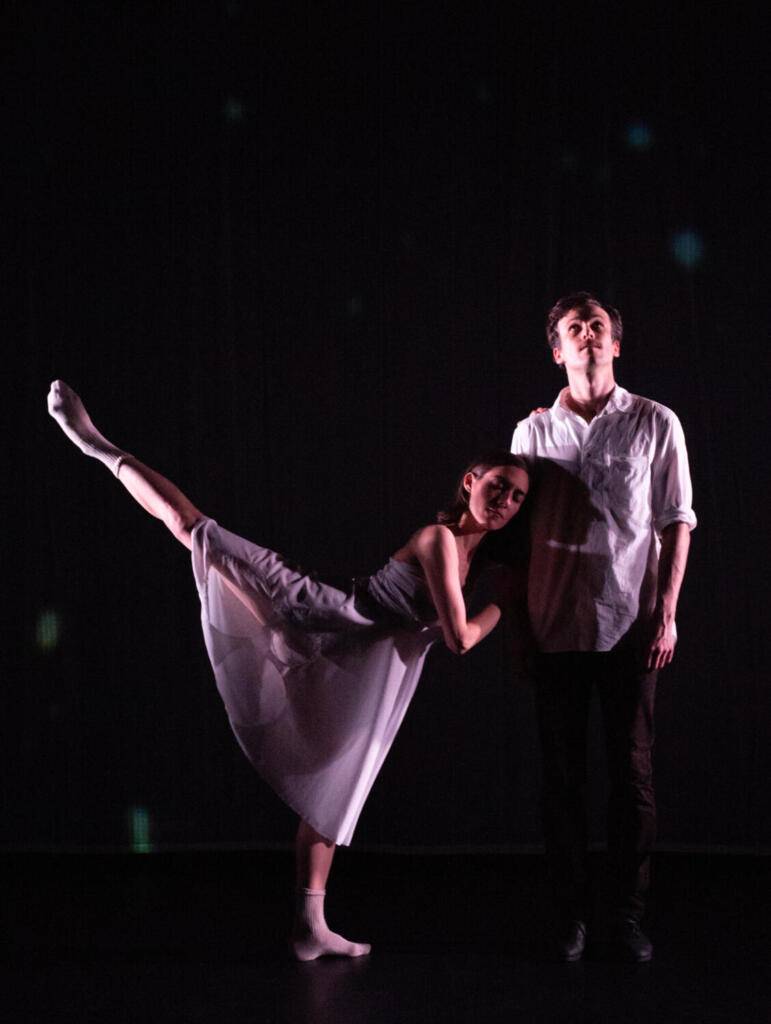
Make//Shift Company. Insomniac’s Fable. Jackson’s Lane. Photo by Patrick Baldwin .
A Day at Summerhall
The most popular morning show at the multiplex venue that is the Summerhall Arts Centre is Daniel Kitson’s Work in Progress, which has fully sold out for the entire run and is closed to the press. I have heard great things about it including that it is possible to get return tickets if you turn up early, at least an hour before the start of the show. If, however, you happen to have had a bad night, you might find solace by starting your day with a show about insomnia.
Part of the From Start to Finnish season at this year’s Fringe, Insomniac’s Fable is billed as a piece of new circus. In fact it is a fully interdisciplinary work mixing dance, video art, shadow puppetry and scenographic innovation with juggling and a poetic repurposing of some familiar circus tropes. Conceived, choreographed and performed by Emma Lister and Sakari Männistöhis, with the help of Ludovic Ondiviela, this show is a perfect example of a match between form and content. What better way to convey the struggles of an insomniac sleeper than as a duet in which sleep is the dream girl, the temptress, the menace, a peerless partner, the ideal other half seemingly within reach but constantly out of touch? Aiming at a Hitchcockian mood, the piece does not spare the audience the anguish that accompanies sleeplessness, and even turns some failure-prone juggling into a series of very fitting metaphors. The musical score, designed by Working Group (with assistance from Tuomas Norvio), mixes a number of genres and even includes some appropriately placed glitches reminiscent of the witching hour delirium. Lister and Männistöhis are entertaining and versatile performers – Männistöhis even tasked with making a joke on the way out to lighten the mood. If the Total Theatre awards were still running this year, this would certainly be a contender.
Whatever you do after, the above-mentioned Distant Memories of the Near Future might be a fitting way to begin bookending the day, especially if you are in the mood for romantic sci-fi. David Head is a witty and poetic writer, a slightly geekier and more hi-tech version of Daniel Kitson perhaps. His show, directed by Laura Killeen alternates between moments of poignancy and dry humour, though in places it feels like it is bursting at the seams with aphorisms, one liners and jingles that add to the stress of the show’s inner ticking clock rather than allowing for a more paced delivery.
Other one-person shows that follow neatly on from this slot, include Gintare Parulyte’s story of overcoming sexual abuse trauma Lovefool, performed with honest enthusiasm by Kristin Winters, and the somewhat more complex in concept and execution You Are Going to Die by Adam Scott-Rowley.
Scott-Rowley is an exceptional performer, so much so that you can watch him stark naked effortlessly switch from playing a cantankerous old woman to a sassy young girl, and immediately fall for it hook, line and sinker. He has one prop/piece of furniture on the stage – a toilet bowl – but he takes you places you’d never dream of or dare to step into of your own volition. Though it never spells it out, You Are Going to Die is a piece about fear. In this hour of extremely unlikely art therapy, Scott-Rowley uses the well-known technique for overcoming phobias that consists of bringing the person afflicted step by step closer to the source of their affliction. It is not necessarily fear of death that his characters are dealing with in any particular way, but it is fear itself that they collectively chase to bring under the spotlight, where it is magically dissolved into wonder and laughter. A five star end to your day, for sure.
A Day at the Traverse
At the other end of town, the famous home of Scottish new writing, Traverse Theatre, is celebrating its 60th birthday. It is a joyous occasion represented by a selection of work opening at various times this month, some home-grown or co-produced (The Grand Opera House Hotel, Sean and Daro Flake It ‘Til They Make It), some returning to celebrate previous successful runs (Nassim, What Girls Are Made Of) and some commissioned as part of a digital season addressing climate emergency, under the umbrella title of Chronic Insanity, curated by Sam Heughan. The National Theatre of Scotland’s feminist state-of-the-nation fiesta Thrown, written by Nat McCleary and directed by Jonny McKnight, is a Traverse show actually programmed as part of the Edinburgh International Festival too.
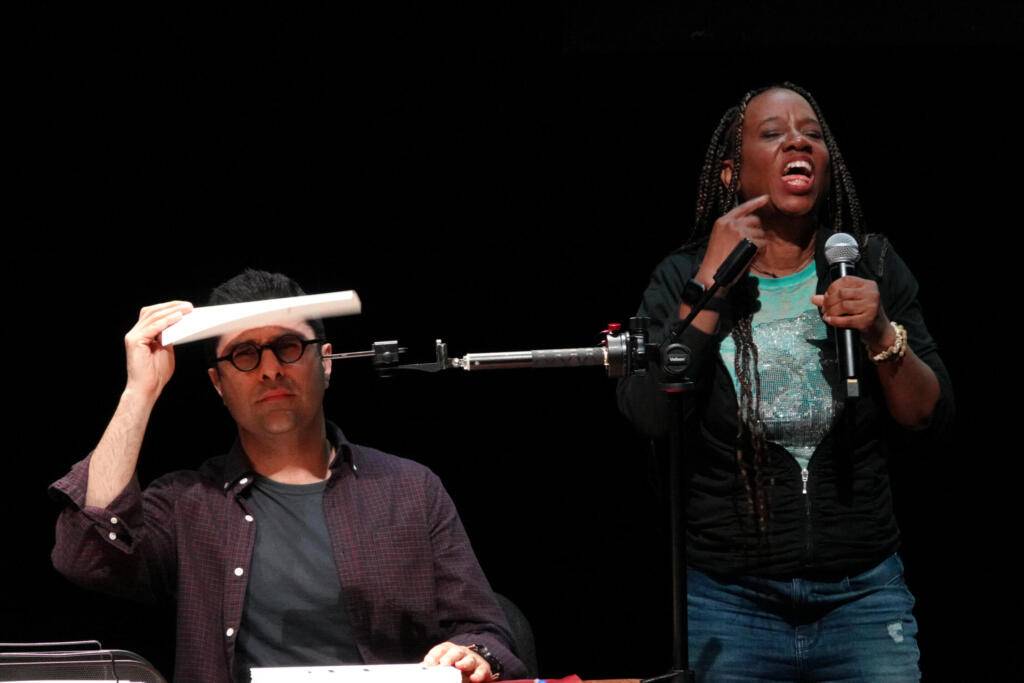
Nassim. Photo by Joen Martin Cantrell.
With so much big scale activity it’s easy to overlook the smaller works, but there is an inspired bit of curatorial thinking that holds them together through a shared emphasis on gig theatre/ music, relationships and LGBTQI+ themes.
The brightest and loudest one of these perhaps is Breach Theatre’s verbatim musical After the Act, focusing on the Section 28 legislation banning the mention of homosexuality in British schools in the 1980s. The show marks the twentieth anniversary of the act’s abolition in England (and 23rd in Scotland). It’s a fascinating piece of historiography reperforming debates from the Houses of Parliament, re-enacting accounts of the lesbian invasion of the BBC, and commemorating the 1988 Albert Square march in Manchester, while also offering numerous personal testimonies of oppression, anxiety and suffering. ‘We were in a far weaker position because we were only able to use rational argument’ is one line from the time that still rings true in response to the more contemporary problems of populism. Written by Billy Barrett and Ellice Stevens, composed by Frew, and performed by a vibrant four-strong ensemble (Tika Mu’tamir, Elise Stevens, EM Williams, and Zachary Willis), After the Act is an energy bomb that is welcome at any time of a Fringe-packed day, but it is equally likely to have a long life well beyond the end of the Fringe. Some stories, such as the one by a remorseful PE teacher who – a closeted lesbian herself – gave a cold shoulder to a student attempting to come out will linger in the memory for a long time. Yet this is also a testament to the work’s potential to redress the balance by re-educating new generations to come, and Frew’s music certainly keeps the accompanying mood upbeat throughout.
Another gig theatre piece with an LGBTQI+ theme at the Traverse is Lauryn Redding’s returning Fringe hit Bloody Elle. It is a solo show performed on multiple guitars and featuring an impressive array of characters: most importantly teenagers Elle and Eve who meet as co-working chip and dip shop cashiers in an unnamed but vividly painted northern city. Bloody Elle is a love story though ‘not an average one’ as its creator informs us. The implied distinguishing feature might be that it is also a coming out story, but far more likely above the average in that it is told with exceptional talent, attention to storytelling detail, and sense of humour. For anyone who has loved and lost or even loved and gained, Bloody Elle will be more than a fitting compensation, a true celebration of love’s ability to overcome barriers and turn up in the most unexpected places.
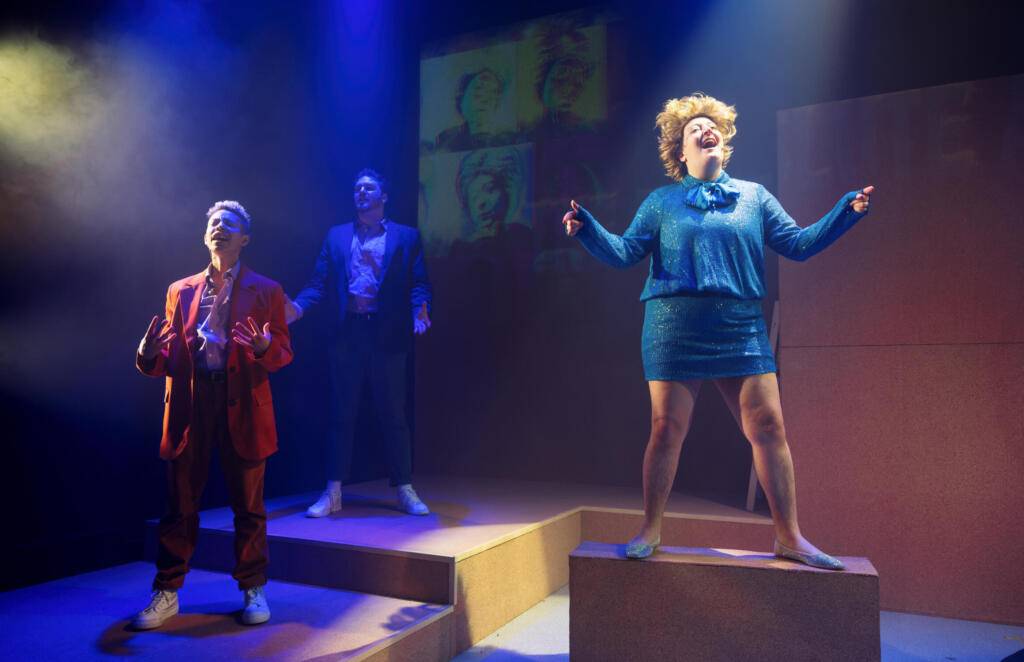
After the Act Photo by Alex Brenner.
A late addition to Traverse’s Fringe programme this year is Kieran Hurley’s three hander Adults. Though Hurley’s early work (Beats, Heads Up) was characterised by a strong interest in music too, Adults is more typical of its host venue’s standard new writing staple: thoughtful and entertaining stories set in Scotland, featuring familiar TV faces for audience appeal. In this case, Conleth Hill is disillusioned and gay-curious high school teacher Mr Urquhart on his first visit to a brothel. He meets Anders Hayward’s frazzled, cash-strapped young parent/ male prostitute Jay at an improvised side hustle run by meticulous and resourceful university graduate Zara (Dani Heron). No prizes for guessing that very soon Zara turns out to have been one of Mr Urquhart’s promising students. As a comedy, the piece is expertly directed by Roxana Silbert to yield plentiful laughs, as a thought-provoking drama disguised within, Adults raises questions of plausibility. In its central conceit Adults is extremely clever: a children’s literature seminar in a brothel poses as an indictment of the so-called ‘adults’ given the world they leave behind for the younger generations. In its execution however, it may have benefited from some breathing space.
The same can be said about the Edinburgh experience as a whole whatever your schedule ends up being – breathing space is essential in order to make the best of the intricate delights it offers.
This post was written by the author in their personal capacity.The opinions expressed in this article are the author’s own and do not reflect the view of The Theatre Times, their staff or collaborators.
This post was written by Duška Radosavljević.
The views expressed here belong to the author and do not necessarily reflect our views and opinions.

